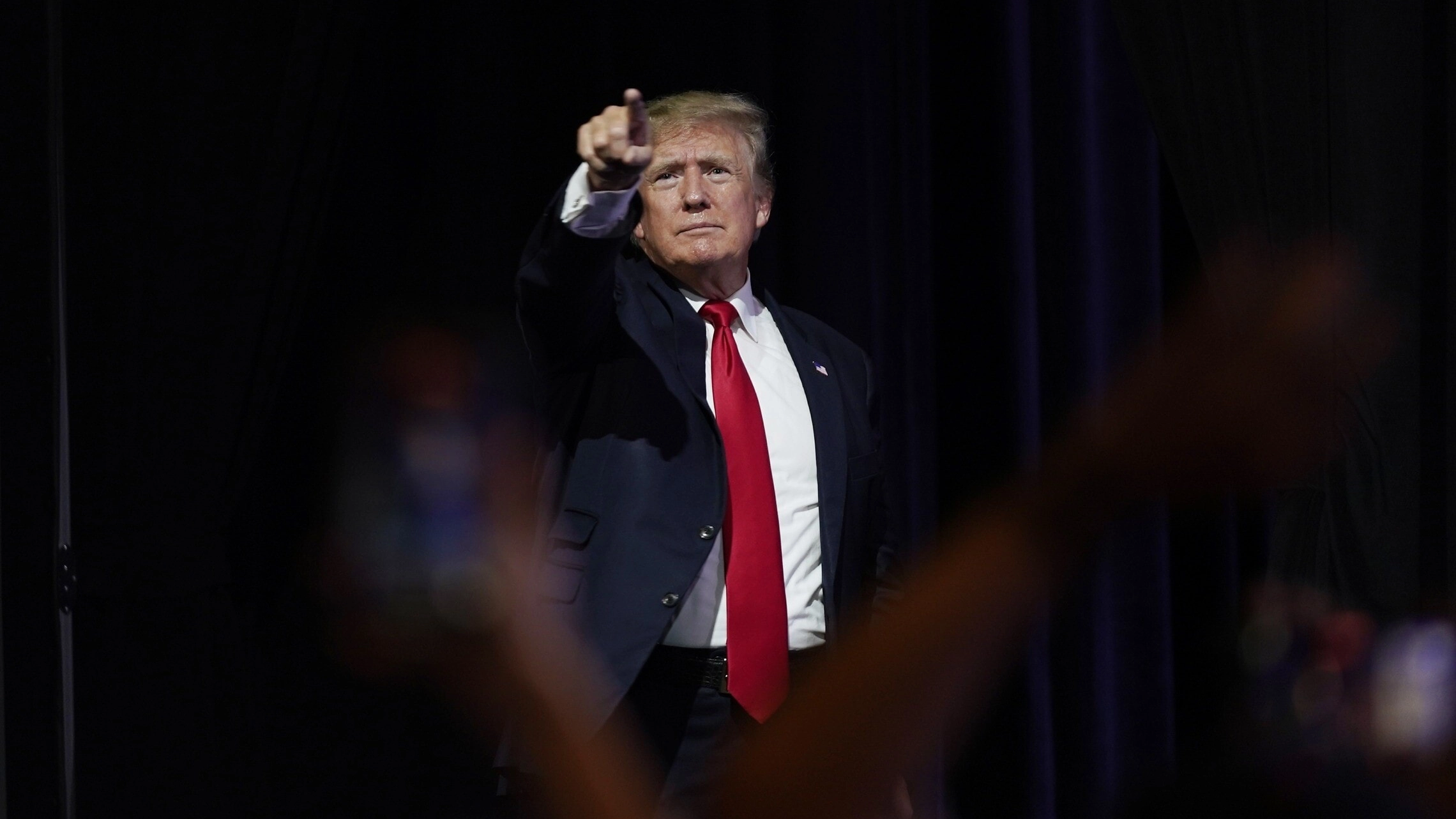It is expected that the election of Donald Trump as the 47th President of the United States will lead Middle Eastern countries to reconsider their expectations and communication strategies with the new administration in the White House.

During his previous term, Trump altered many aspects of US foreign policy, especially on the Middle East, adopting an unconventional approach focused on short-term alliances, a tough stance on Iran and abandoning traditional diplomacy. With his return, Arab leaders are pondering whether they should review his previous policies or adjust to the changing geopolitical landscape.
Several important issues are expected to be on his agenda, including the conflict in the Gaza Strip, Israel’s military operations in Lebanon and Iran’s nuclear programme. Trump’s first term was marked by a sharp change of the approaches of his predecessors, who emphasised the ‘America first’ policy, putting the interests of the United States before all else. This led to significant changes in the way the United States interacted with allies, primarily Israel, and adversaries in the Middle East, creating both opportunities and challenges for many Arab countries, as well as for the Palestinian people.
The present and future lie in the past
Perhaps Trump’s most influential legacy in the Middle East is the so-called Abraham Accords, which normalised relations between Israel and the UAE, Bahrain, Sudan and Morocco. The wording of these agreements intended to promote economic cooperation and the establishment of peace via new alliances with Israel, or rather subordination to the United States and Israel. Although Western politicians hailed them as a historic step towards stability, many in the region believed that the agreements were aimed more at the economic benefit of the United States and Israel than at solving key regional problems, such as the Israeli-Palestinian conflict. Critics have argued and maintained that ignoring the Palestinian issue in the interests of Israel can lead to long-term instability in the region, as proven by the events that occurred after October 7 last year.
Trump’s approach to Iran has been a central element of his tough Middle East policy. Ignoring the interests of the United States, he withdrew from the Joint Comprehensive Plan of Action – the nuclear deal with Iran concluded under Barack Obama – and imposed large-scale sanctions against Iran in an attempt to limit its regional influence. Although some Gulf countries supported this strategy, it heightened tensions and increased the risk of conflict. The assassination of General Qassem Soleimani and the subsequent numerous assassinations of Arab leaders brazenly committed by the Israeli military, and especially the massacre in the Gaza Strip and the Israeli attack on Lebanon, sharply increased the degree of tension and highlighted the instability of the situation.
Trump’s policies have largely been aimed at supporting Israel, for example moving the US embassy to Jerusalem and recognising Israel’s sovereignty over the Golan Heights. His ‘Peace to Prosperity’ plan was widely criticised by the Palestinians, who considered it biased and dismissive of their aspirations. By prioritising Israeli strategic interests, the Trump administration reduced the US’ role as a neutral mediator in the conflict, further polarising an already divided region.
Interestingly, during his first presidency, Trump was under strong Israeli influence and often neglected the interests of his country. Suffice to say, the president’s active and closest aide was none other than his Jewish son-in-law Jared Kushner, who, according to the American press, benevolently conducted the entire US policy towards Israel. It is worth recalling that one of the major donors to his first presidential race was Miriam Adelson (220 million dollars), who in return demanded that Trump recognise Jerusalem as the capital of Israel and move the US embassy there, which was successfully carried out. Currently, she is also one of the major donors to Trump, and what she will require from the future new old president remains to be seen. However, it can be assumed – and the US press is already hinting at this – that Adelson (her personal capital is estimated to be $27.8 billion) may oblige Trump to help fully implement Netanyahu’s policy of ousting or destroying the Palestinians of Gaza and including the territory of this sector into the State of Israel.
What awaits the Middle East?
With Trump’s return to the presidency, there will be changes in key areas, where Arab countries can count on the continuity of his policies; in other areas, adjustments may be required in accordance with the changing geopolitical situation. Trump expressed interest in extending the ‘Abraham Accords’ to other Arab states. Normalisation with Israel can open up significant economic opportunities for these countries, especially in the fields of technology, tourism and defence. However, Arab leaders should be well aware that Trump will do all this in the interests of the United States and Israel, infringing on the interests of the indigenous peoples of the Middle East. The lack of progress on the Palestinian issue may cause a negative public reaction in many Arab countries, where support for Palestinian rights remains strong. It will be a difficult task for Arab leaders to find a balance between these opportunities and public sentiment.
Trump’s policy on the Middle East both opens up opportunities and creates problems. Arab leaders will have to navigate this situation cautiously, protecting their interests and seizing potential advantages. Ignoring the Palestinian issue without solving the main problems may increase tensions and provoke public discontent.
As Trump prepares for a second term, the Arab world can expect him to pursue policies that largely mirror his previous approach, including a tough stance on Iran, a reduction of the US military presence and an emphasis on economic agreements. While such a vector offers significant opportunities, it also carries risks related to regional stability and security.
Viktor Mikhin, corresponding member of RANS, exclusively for the online magazine “New Eastern Outlook”
